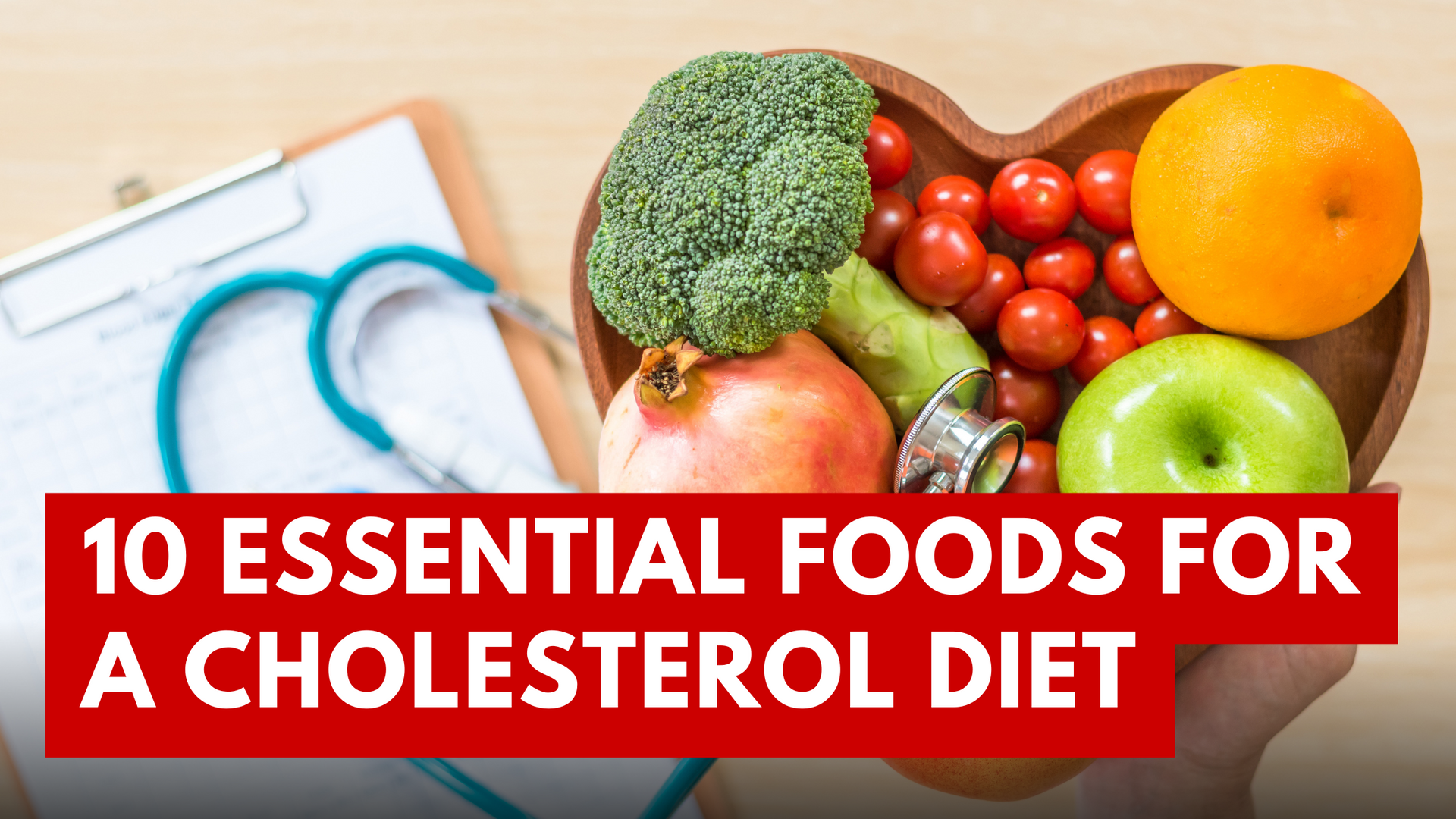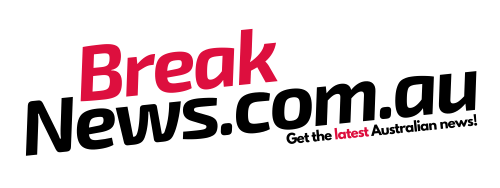10 Essential Foods for a Cholesterol Diet: Boost Your Heart Health Naturally

Introduction to Cholesterol and Heart Health
Did you know that approximately 38% of American adults have high cholesterol? This statistic highlights a growing concern that many face today. Cholesterol, a waxy substance found in your blood, is essential for building healthy cells. However, not all cholesterol is beneficial.
The two main types of cholesterol are LDL (low-density lipoprotein), often referred to as 'bad' cholesterol, and HDL (high-density lipoprotein), known as 'good' cholesterol. High levels of LDL can lead to the buildup of plaque in your arteries, increasing the risk of heart disease and stroke. On the other hand, HDL helps to remove LDL from the bloodstream, promoting heart health.
Managing cholesterol levels is crucial, and diet plays a significant role in this process. By making mindful food choices, you can naturally lower your LDL levels and boost HDL levels. A diet rich in heart-healthy foods can significantly reduce the risk of cholesterol-related health issues. In this article, we will explore ten essential foods that can help you maintain a healthy heart and manage your cholesterol levels effectively.
Oats for Heart Health
Growing up, my grandmother always started her day with a warm bowl of oatmeal. She would often say, "A day begun with oats is a day won." Little did I know then, she was onto something!
Oats are packed with soluble fiber, specifically beta-glucan, which is known for its heart health benefits. This type of fiber effectively absorbs LDL cholesterol, or the "bad" cholesterol, and helps flush it out of your system. By reducing the levels of LDL, oats can significantly lower the risk of heart disease.
"Soluble fiber not only aids digestion but also plays a crucial role in lowering cholesterol levels, promoting heart health."
Incorporating oats into your breakfast is both simple and delicious. Consider starting your day with a classic bowl of oatmeal topped with fruits and nuts, or get creative with overnight oats mixed with yogurt and berries. Another easy option is to blend oats into your morning smoothie for a fiber-rich boost.
Whether you enjoy them savory or sweet, oats are a versatile and heart-friendly addition to your diet. Embrace the warmth and health benefits of oats and give your heart the love it deserves.
Fatty Fish and Omega-3s
Imagine savoring a delicious piece of grilled salmon while knowing it's doing wonders for your heart. That's the beauty of fatty fish. These fish are not only delectable but also rich in omega-3 fatty acids, which are essential for maintaining heart health.
-
Salmon
-
Tuna
-
Mackerel
These types of fish pack a punch when it comes to omega-3s. Studies have shown that omega-3 fatty acids can reduce triglycerides, lower blood pressure, and decrease the risk of heart disease. In fact, regular consumption of omega-3s has been linked to a 15% reduction in heart disease risk.
To harness these benefits, it's recommended to enjoy at least two servings of fatty fish per week. Each serving is about 3.5 ounces cooked or roughly 3/4 cup of flaked fish. This not only provides your body with essential nutrients but also diversifies your meal plan with flavorful and healthy options.
Incorporating fatty fish into your diet is a delicious way to give your heart the care it deserves. So, next time you're planning your meals, consider adding these ocean treasures to your plate.
Nuts: A Crunchy Solution
When it comes to snacking, nuts are a powerhouse of nutrition. Almonds, walnuts, and pistachios are loaded with heart-healthy fats, particularly monounsaturated and polyunsaturated fats, that can help lower bad cholesterol (LDL) levels. In fact, consuming a handful of nuts daily has been associated with a 30% reduced risk of heart disease.
Beyond their healthy fats, nuts are rich in antioxidants and possess anti-inflammatory properties. These nutrients help combat oxidative stress and inflammation, which are contributors to heart disease.
Incorporating nuts into your diet is easy and delicious. Sprinkle them over salads for an added crunch, blend them into smoothies, or simply enjoy them as a stand-alone snack. However, moderation is key. A recommended serving size is a small handful, or about 1 ounce, which is roughly 23 almonds, 14 walnut halves, or 49 pistachios.
With their myriad benefits and versatility, nuts are an excellent addition to any cholesterol-lowering diet. So, why not go nuts for your heart health?
Avocados for Good Cholesterol
Avocados are a delicious and nutritious addition to any cholesterol-lowering diet. Known for their creamy texture, these fruits are packed with essential nutrients. They are rich in vitamins C, E, K, and B-6, as well as minerals like potassium and magnesium. But what truly sets avocados apart is their high content of monounsaturated fats.
“Healthy fats, like those found in avocados, are vital for increasing good cholesterol (HDL) levels." Monounsaturated fats help to reduce bad cholesterol (LDL) while boosting HDL, creating a balanced cholesterol profile that supports heart health.
Incorporating avocados into your diet is simple and versatile. Try adding sliced avocados to your salads or sandwiches for a nutrient boost. For a quick and tasty snack, mash an avocado and spread it on whole-grain toast, topped with a sprinkle of salt and pepper. Alternatively, whip up a quick guacamole with diced tomatoes, onions, lime juice, and cilantro.
With their numerous health benefits and culinary flexibility, avocados are a must-have for anyone looking to improve their heart health naturally.
The Benefits of Olive Oil
When it comes to heart health, extra-virgin olive oil stands out as a superior choice compared to regular cooking oils. Unlike its refined counterparts, extra-virgin olive oil is minimally processed, retaining a wealth of nutrients. It’s rich in antioxidants and monounsaturated fats, which are known to lower bad cholesterol (LDL) and boost good cholesterol (HDL).
Here’s a quick comparison table of different oils:
| Type of Oil |
Processing Level |
Key Nutrients |
|---|---|---|
| Extra-Virgin Olive Oil |
Minimal |
Monounsaturated fats, Antioxidants |
| Regular Olive Oil |
More Refined |
Fewer Nutrients |
| Vegetable Oil |
Highly Processed |
Polyunsaturated fats |
One notable health study indicated that a diet rich in extra-virgin olive oil can significantly reduce the risk of heart disease. The Mediterranean diet, which emphasizes olive oil, has been hailed for its cardiovascular benefits.
To incorporate olive oil into your meals, use it as a base for salad dressings or drizzle it over vegetables for roasting. Its robust flavor also enhances pasta dishes and grilled meats, making it both a healthy and tasty choice.
Embrace extra-virgin olive oil in your cooking, and give your heart the natural boost it deserves.
Whole Grains for a Healthy Heart
Whole grains are a cornerstone of a heart-healthy diet, offering numerous benefits that refined grains simply can't match. The primary difference lies in their processing. Whole grains retain all parts of the grain kernel, including the bran, germ, and endosperm, while refined grains are stripped of these nutritious components.
The fiber found in whole grains is crucial for lowering cholesterol levels and promoting a healthy heart. Fiber helps to reduce bad cholesterol (LDL) by binding with cholesterol particles and aiding their removal from the body. Additionally, diets rich in whole grains have been associated with a reduced risk of heart disease.
Despite these benefits, only about 8% of adults consume the recommended three servings of whole grains daily. To boost your intake, consider incorporating the following whole grains into your meals:
-
Oats
-
Brown rice
-
Quinoa
-
Whole wheat bread
-
Barley
By making a simple swap from refined grains to whole grains, you can significantly enhance your heart health while enjoying a variety of delicious and satisfying foods.
Beans: A Plant-Based Powerhouse
Beans are a nutritional dynamo, offering a perfect blend of fiber and protein that supports a heart-healthy diet. Packed with soluble fiber, beans help reduce bad cholesterol (LDL) levels by preventing its absorption in the gut. A diet rich in fiber has been shown to significantly lower the risk of heart disease.
“Incorporating more plant-based foods, such as beans, into your diet can lead to improved heart health and overall well-being.”
There are numerous varieties of beans to choose from, each adding a unique flavor and texture to your meals. Consider adding kidney beans, chickpeas, lentils, or black beans to your culinary repertoire. These versatile legumes can be used in soups, salads, and stews, making them a convenient addition to any meal.
For a simple and delicious way to enjoy beans, try making a classic chili or a refreshing bean salad. These dishes not only taste great but also contribute to a healthier heart. By incorporating beans into your diet, you can enjoy a delicious, plant-based solution to maintaining optimal cholesterol levels.
Fruits: Nature's Sweet Treats
Fruits are not only delicious but also a natural powerhouse of nutrients that support heart health. Apples, berries, and citrus fruits are particularly rich in pectin—a type of soluble fiber that effectively lowers LDL cholesterol. According to studies, individuals who consume a diet high in fruits have a 25% reduced risk of developing heart disease.
Beyond fiber, these fruits are loaded with antioxidants such as vitamin C and flavonoids, which help combat oxidative stress and inflammation, two key factors in heart disease. Antioxidants play a crucial role in maintaining healthy blood vessels and improving overall cardiovascular health.
Incorporating fruits into your daily meals can be both simple and enjoyable. Try adding fresh berries to your morning oatmeal or blending them into a smoothie for a refreshing start to your day. Create a vibrant salad with citrus segments, or bake apples with a sprinkle of cinnamon for a cozy dessert. These creative fruit-based recipes not only satisfy your sweet tooth but also contribute to a heart-healthy diet. Embrace these sweet treats as a delicious way to lower cholesterol and boost heart health.
FAQs on Cholesterol Management
Q: What is the difference between LDL and HDL cholesterol? A: LDL (low-density lipoprotein) is often referred to as 'bad' cholesterol because high levels can lead to plaque buildup in arteries, increasing heart disease risk. HDL (high-density lipoprotein) is 'good' cholesterol that helps remove LDL from the bloodstream.
Q: Does eating cholesterol-rich foods raise my cholesterol levels? A: It's a common myth that all dietary cholesterol raises blood cholesterol. While some individuals are more sensitive, many can consume these foods without significant impact. Focus instead on reducing saturated and trans fats.
Q: Can a plant-based diet help manage cholesterol? A: Yes, plant-based diets, rich in fruits, vegetables, whole grains, and legumes, are effective in lowering LDL cholesterol and promoting heart health.
Q: How can I maintain healthy cholesterol levels? A: Incorporate heart-healthy foods like oats, fatty fish, nuts, and olive oil. Regular exercise and maintaining a healthy weight also play crucial roles in managing cholesterol levels.
By understanding cholesterol and making informed dietary choices, you can actively manage your heart health. Remember, it’s always wise to consult with a healthcare provider for personalized advice.
Conclusion
Managing cholesterol through diet is a powerful way to support your heart health and overall well-being. By focusing on foods that naturally lower LDL and boost HDL, you take a proactive step toward reducing the risk of heart disease and other related conditions. The key is to embrace a variety of nutrient-rich foods that work synergistically to keep your heart thriving.
Incorporating the ten essential foods we've discussed—ranging from oats and fatty fish to fruits and beans—can transform your diet into a heart-healthy powerhouse. Each of these foods contributes unique benefits, from reducing inflammation to providing essential omega-3 fatty acids. Make it a personal mission to include these foods in your meals regularly.
Your heart deserves the best care you can give. Start today by making small, meaningful changes to your diet. Not only will you be investing in your heart health, but you'll also be setting a foundation for a healthier future. Remember, every meal is an opportunity to nourish your body and protect your heart.
Limited Time Offer
Become a Successful NDIS Provider
$689 $349
Use code EARLY349 at checkout
News Feed







